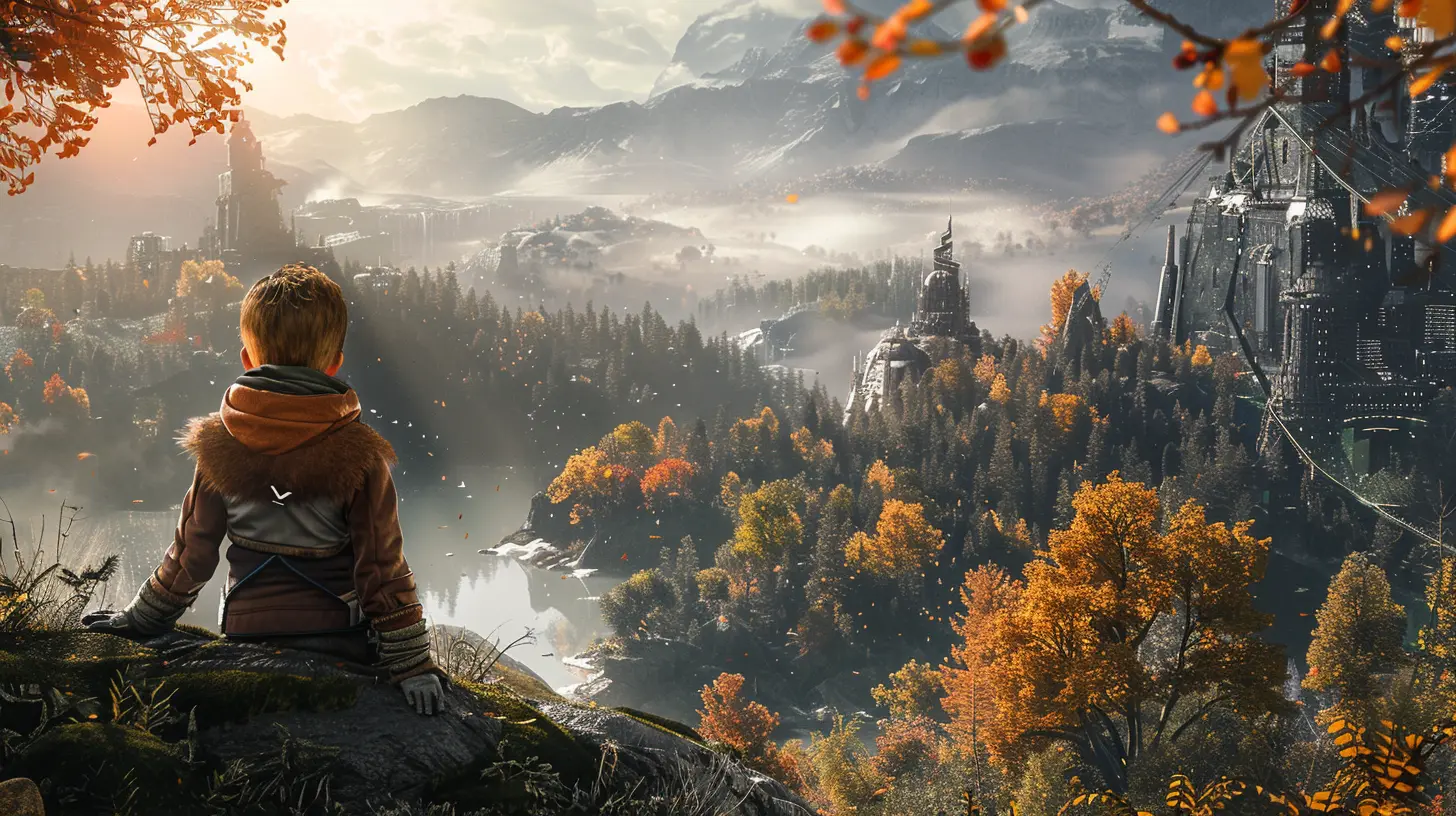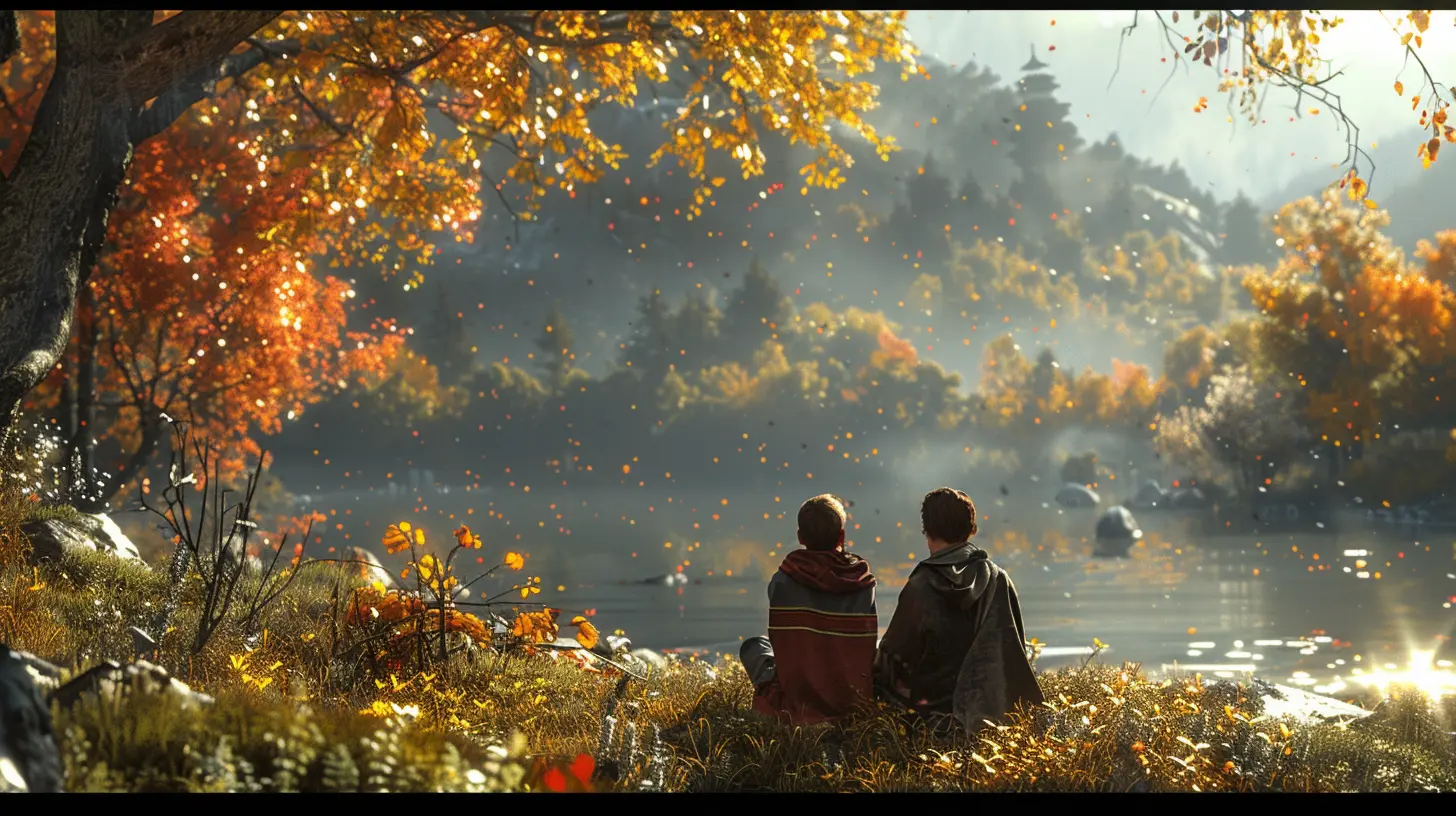Empathy and Emotion: How Games Are Crafting Deeper Player Connections
30 May 2025
Have you ever found yourself choking up during an emotional cutscene in a video game? Or maybe you’ve been so invested in a character’s story arc that it felt like they became a part of your own life? If the answer is yes, don’t worry—you're not alone. Video games are evolving far beyond simple distractions or high-stakes competitions. These days, they’re emotional powerhouses creating deeper, more meaningful connections with players like never before.
Let’s dive into how game developers are leveraging empathy and emotion to craft experiences that stay with us long after we put down the controller. 
The Rise of Emotion-Driven Gaming
Video games used to be all about action, power-ups, and high scores, right? But times have changed. Sure, blasting your way through levels or racing to the finish line is still fun, but now we’re seeing games that aim to tug at your heartstrings just as much as they challenge your reflexes.When you think about it, gaming is in a perfect spot to create emotional experiences. Unlike movies or books, games put you in the driver’s seat. You’re not just watching a character go through an emotional rollercoaster—you’re living it. That’s incredibly powerful.
But why the shift? Honestly, it’s a mix of growing technology and a demand for deeper storytelling. As gamers, we’re no longer content with shallow plots or flat characters. We want stories that resonate, worlds that feel alive, and characters with depth. 
Empathy: The Secret Sauce of Modern Game Design
So, how do games make us care so deeply? That’s where empathy comes in. Empathy is the ability to understand and share the feelings of others, and it’s become the backbone of the most memorable gaming experiences.Think about The Last of Us. It’s not just a story about surviving in a post-apocalyptic world—it’s about the bond between Joel and Ellie. You experience their fears, losses, and small victories. By walking in their shoes (sometimes literally), you form a connection that goes way deeper than just liking their character design or backstory.
Or take Life is Strange. This game doesn’t just ask you to empathize; it forces you to. The choices you make have weight, and every decision feels personal. Choose to save someone, and you’ll feel relief. Choose wrong, and guilt will gnaw at you, just like it would in real life. 
How Games Trigger Emotional Responses
If you’re wondering how games are able to spark such strong emotions, it’s not magic—it’s brilliant design. Developers use a combination of storytelling techniques, audio-visual cues, and gameplay design to manipulate how we feel. Here’s how it works:1. Deep Storytelling
Gone are the days of cookie-cutter plots. Modern games weave intricate narratives filled with twists and turns. Games like Red Dead Redemption 2 and Mass Effect create complex worlds where every character has a story, a motivation, and a reason for you to care.Narratives are layered and nuanced in a way that rivals TV shows and novels. What sets games apart? You’re not just watching the story unfold—you’re shaping it. That level of agency turns an already great story into a personal journey.
2. Relatable Characters
Ever played a game where you felt like the protagonist could be you? Relatability is key in fostering emotional bonds. Characters with flaws, vulnerabilities, and human-like quirks resonate with players.For example, Kratos from God of War went from being a rage-filled warrior to a father struggling with his past and trying to guide his son. That shift made him infinitely more relatable and lovable.
3. Music That Hits Hard
I guarantee you’ve cried during a gaming moment where the music swelled at just the right time. Good soundtracks amplify emotions. Whether it’s the haunting melodies of Journey or the tense orchestral beats of Sekiro: Shadows Die Twice, music sets the tone, enhances immersion, and taps directly into your emotions.4. Moral Dilemmas
If you’ve ever had to make a tough in-game decision, you know the emotional toll it can take. Games like Undertale and The Walking Dead thrive on moral choices that challenge your values. These moments make you pause, consider, and sometimes even regret your actions.5. Visual Storytelling
Have you noticed that some of the most emotional gaming moments happen without a single line of dialogue? That’s the power of visual storytelling. Silent glances, subtle gestures, and beautifully crafted environments can evoke emotions just as effectively as words.A prime example is Shadow of the Colossus. It’s a visually minimal game, yet the sheer scale of the creatures you fight—and the inevitable guilt for taking them down—leaves a lasting emotional impact. 
The Role of Technology in Emotional Storytelling
Technology is undoubtedly a game-changer when it comes to crafting emotionally engaging experiences. Advanced graphics, motion capture, and AI systems bring characters and worlds to life like never before.Take facial animation, for instance. Games like The Last of Us Part II use hyper-realistic expressions to convey subtle emotions. Ellie’s trembling lip or Joel’s furrowed brow can communicate volumes without a single word.
Meanwhile, advancements in AI allow NPCs to respond more dynamically to your actions. This doesn’t just make the world feel more alive—it makes the stakes feel higher. You’re no longer just playing a game; you’re participating in a living, breathing narrative.
Why Emotional Connection Matters
You might be thinking: "This is all cool, but why does it matter?" Well, emotional connections in gaming go beyond just making us cry into our keyboards.1. Player Retention
When we care about a game’s world or characters, we’re more likely to stick with it. That’s why story-driven games often inspire obsessive fandoms. We don’t just play these games; we internalize them.2. Broader Audience Appeal
Emotionally resonant games attract a wider range of players. Not everyone is into high-octane, competitive gameplay, but almost everyone can appreciate a good story that makes them feel something.3. Positive Impact on Mental Health
Believe it or not, emotional games can be therapeutic. They allow us to process our own feelings, empathize with others, and even gain a deeper understanding of complex issues. Games like Celeste, which deals with themes of mental illness and resilience, help players feel seen and understood.Games That Get It Right
So, which games have pulled this off flawlessly? Here’s a brief list of titles that have left an emotional mark on players around the world:1. The Last of Us Series
An obvious choice, but for a reason. Few games have mastered the art of storytelling and character development quite like this post-apocalyptic masterpiece.2. Life is Strange
This episodic game series dives deep into friendship, loss, and the power of choice. Each decision you make carries profound emotional weight.3. Journey
Sometimes less is more. Journey uses minimalistic design and wordless storytelling to create an emotional odyssey that sticks with players.4. Spiritfarer
A game about death shouldn’t be this comforting, but here we are. Spiritfarer asks players to guide spirits to the afterlife, delivering a heartwarming yet heartbreaking experience.5. Undertale
Toby Fox’s indie darling challenges players to rethink what it means to be a hero or a villain. Your choices in this quirky RPG carry emotional consequences that resonate deeply.The Future of Empathy in Games
As technology continues to advance, the potential for emotional storytelling in games is limitless. Virtual reality, in particular, is opening up new dimensions of immersion. Imagine stepping into a fully realized world where every glance and gesture feels real. That’s not just the future—it’s already happening.We’re also seeing more games tackle heavy themes like grief, identity, and social justice. This trend isn’t just about pushing boundaries; it’s about proving that games are a legitimate art form capable of moving audiences just as powerfully as any movie or novel.
Final Thoughts
Gaming isn’t just about escaping reality anymore. It’s about connecting, feeling, and understanding. By weaving empathy and emotion into their narratives, developers are transforming the medium into something deeply human.The next time you find yourself crying over a game (and you will), take a moment to appreciate the craft that went into making you feel that way. It’s a testament to just how far gaming has come—and where it’s headed.
all images in this post were generated using AI tools
Category:
Interactive StorytellingAuthor:

Kaitlyn Pace
Discussion
rate this article
3 comments
Caitlin McMaster
Oh sure, because nothing says "deep emotional connection" like crying over pixelated characters while I binge-drink soda and ignore my real-life feelings. Sounds legit!
June 12, 2025 at 3:27 AM

Kaitlyn Pace
While it may seem trivial, gaming can offer a unique space for emotional exploration, allowing players to connect with their feelings and experiences in a safe environment.
Destiny Pratt
This article beautifully highlights the transformative power of games in fostering empathy and emotional connections. It's inspiring to see how developers are prioritizing deeper narratives and character development, allowing players to truly engage with stories. It's a reminder of the profound impact interactive experiences can have on our understanding of one another.
June 6, 2025 at 2:54 PM

Kaitlyn Pace
Thank you for your thoughtful comment! I'm glad you found the article inspiring and agree on the significant role games play in fostering empathy and emotional connections.
Azriel McLain
This article beautifully captures how games can touch our hearts! It’s incredible to see how immersive storytelling and relatable characters foster connections, making us feel understood and less alone. Can't wait to hear more stories that evoke empathy and bring players together in meaningful ways!
June 1, 2025 at 3:02 AM

Kaitlyn Pace
Thank you for your thoughtful comment! I'm glad the article resonated with you—it truly highlights the power of games to foster empathy and connection.



